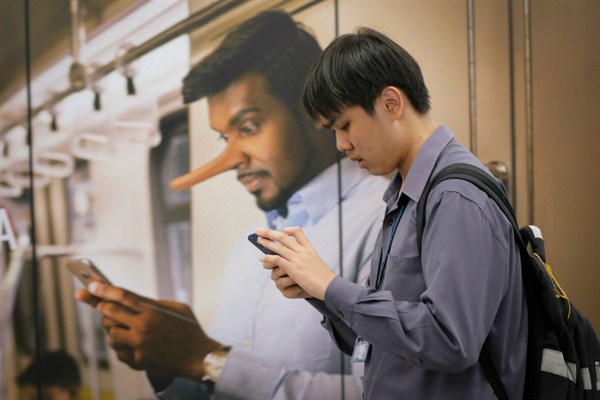Political observers throughout the Asia-Pacific will have their hands full for the next few months, as several of the region’s largest democracies are set to hold national elections between now and the end of May. But as officials from Mumbai to Manila prepare to tabulate the more than 750 million votes that are expected to be cast across the region, journalists, academics and civil society watchdogs are grappling with a different challenge: politically motivated disinformation, fake news articles, hoaxes and hate speech, spread online via social media and messaging apps.
The problem is not new and is by now universally recognized as a threat to democracy around the world. But younger Asian democracies in particular, with their large, increasingly digitally connected populations and lax regulations around information technology and political marketing, are the frontlines in the war against online disinformation. Data released by the social media platform Hootsuite and the marketing agency We Are Social show that the Asia-Pacific region accounted for 75 percent of global growth in active social media users last year. And it isn’t just in authoritarian China; large democracies like India, Indonesia and the Philippines—all of which will hold major elections this spring—are also seeing rapid growth in social media use. India alone added 60 million active social media users last year, and Indonesia and the Philippines both rank in the top five in terms of average time per day spent online, according to Hootsuite and We Are Social’s report.
Much of that time is being spent using Facebook or its instant-messaging apps, Messenger and WhatsApp, due in part to the company’s aggressive growth strategy in the region. Facebook is now virtually synonymous with the internet in certain parts of Asia, particularly in rural areas. Ross Tapsell, a scholar of media and culture at Australian National University, says that survey respondents in Southeast Asia who are asked if they have internet will often answer “no.” “But if you ask if they have Facebook, they’ll say ‘oh yeah, I have Facebook.’”

